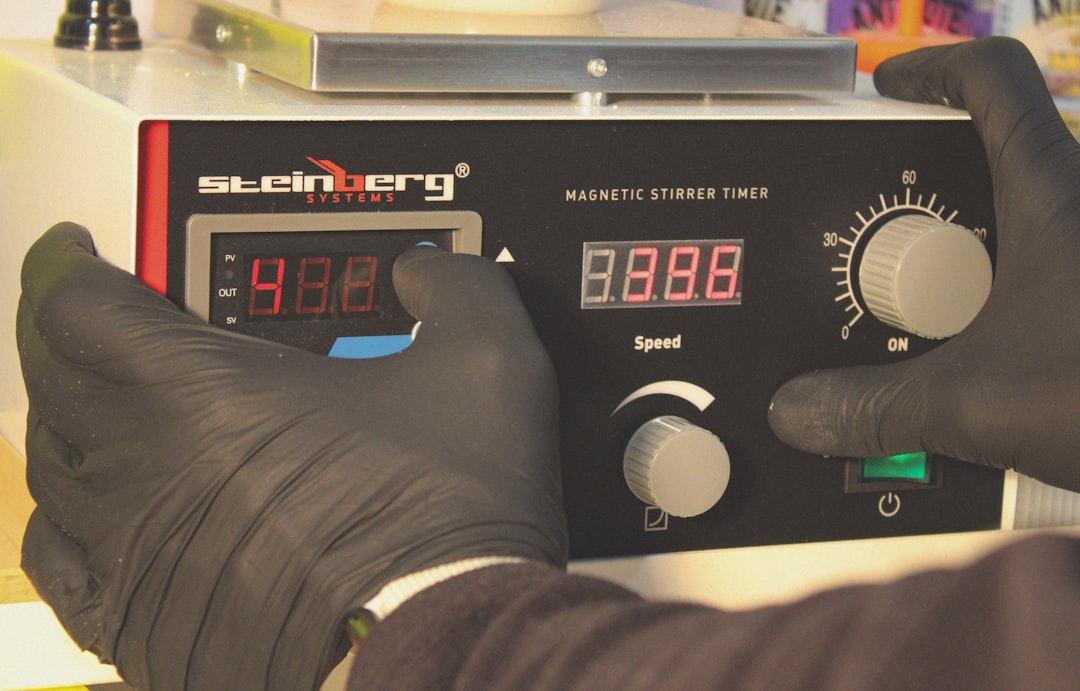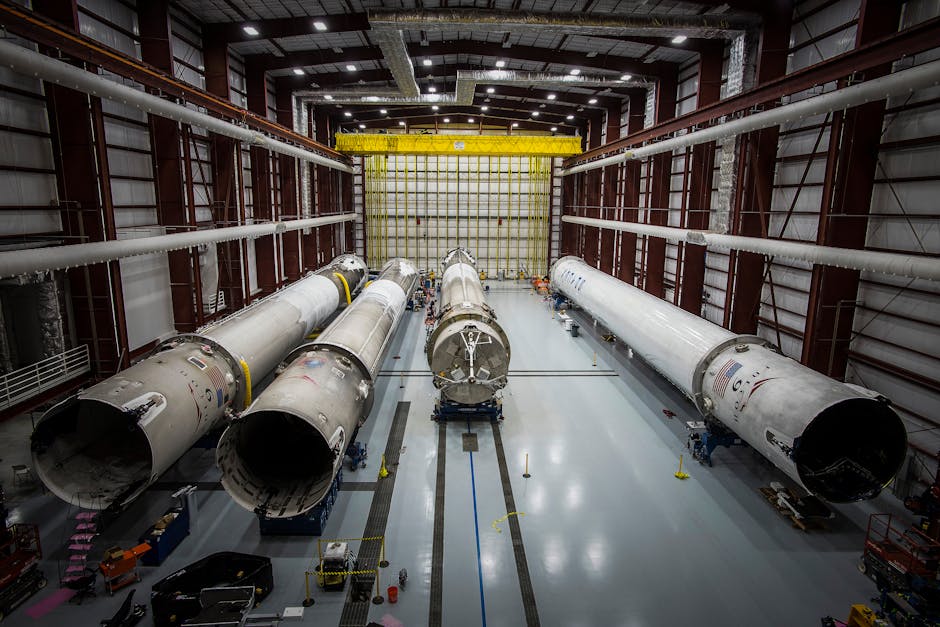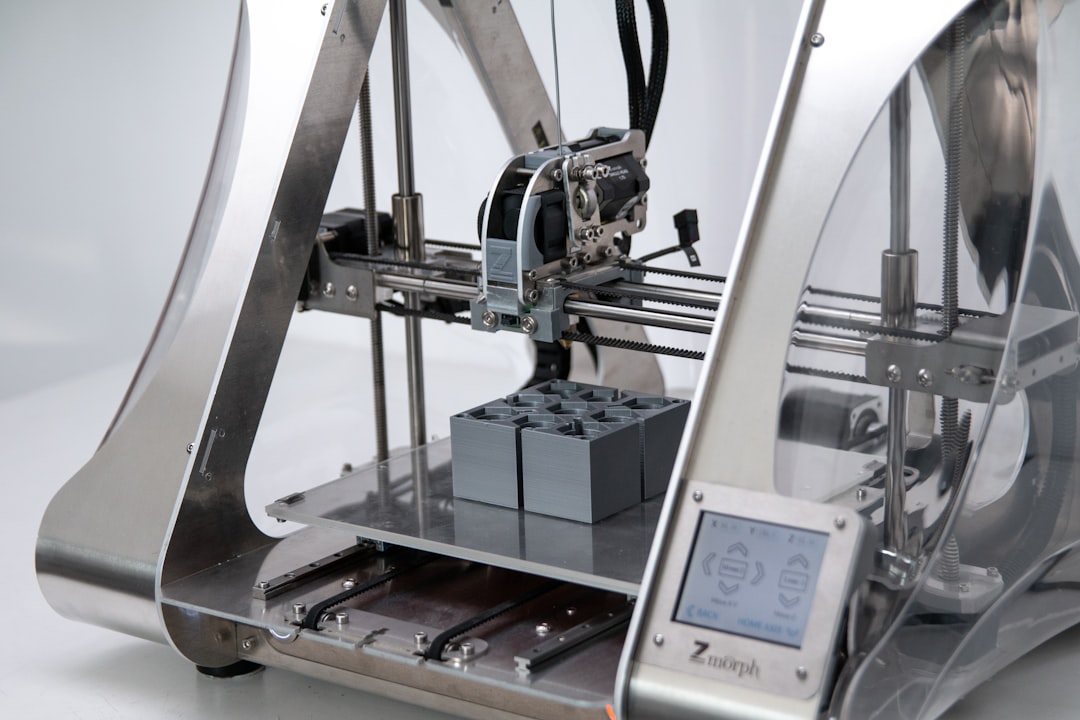Ever grappled with the challenge of obtaining high-quality components for your industrial machinery? We understand the difficulty of finding trustworthy suppliers who not only provide parts, but deliver them with the utmost accuracy, reliability, and longevity. This is where precision machining parts step in and make a huge difference.
Precision machining parts are the lifeblood of modern engineering. They’re found in the automotive, aerospace, medical, and countless other industries, playing a vital role in powering the world and making our lives easier and safer. When it comes to enhancing the efficiency and performance of your engineering projects, precision machining components are indispensable. At TMC Technologies, our expertise in this critical sector of manufacturing ensures top-notch quality every time.
But what exactly are precision machined parts, and why are they so crucial? A precision machined part signifies that the same dimension can be repeatedly and accurately replicated across multiple components. Exceptional accuracy and precision are the hallmarks of these parts, ensuring your designs meet intended requirements, thereby enhancing the lifespan and performance of your machinery.
Here’s a quick snapshot of key points to know about precision machining parts:
- Purpose: They are used to construct high-precision hardware and components for various industries.
- Precision: They offer high precision and repeatability, meeting stringent tolerances as small as ±0.0001″.
- Materials: Precision machining parts can be made from a wide variety of materials, including aluminum, brass, stainless steel, plastics, and more.
- Benefits: They provide superior accuracy, increased efficiency, reduced material waste, and significant time savings.

In the sections that follow, we’ll take a deeper dive into precision machining, its processes, role in various industries, and its immense benefits in elevating your engineering projects.
Understanding Precision Machining Process
When we talk about precision machining, we refer to a type of machining process that employs computer-controlled machine tools to create parts with high accuracy and complexity. This process is typically used to produce parts that require tight tolerances, intricate details, or both. It’s a subtractive manufacturing process, meaning it starts with a solid block of material (like metal or plastic) and gradually removes material until the desired shape is achieved.
Definition and Importance of Precision Machining
A successful precision machining process relies on two crucial factors. Firstly, it needs a high-quality cutting tool capable of carefully removing material to match the desired product dimensions. Secondly, it requires a Computer Numerical Control (CNC) machine, which automatically controls the cutting tool, guiding it where to cut/mill on the workpiece.
But why is precision machining so important? Well, the answer lies in the high degree of accuracy it provides. This process ensures the produced parts fit and function together as planned, eliminating the risk of defective products and subsequent losses.
The Role of Computer-Aided Design (CAD) in Precision Machining
Every precision machining process starts with a design. This is where Computer-Aided Design (CAD) comes into play. CAD software allows designers to create accurate 2D and 3D models of the part to be manufactured. These digital models serve as the blueprint for the CNC machine, guiding it throughout the machining process.
The Role of Computer-Aided Manufacturing (CAM) in Precision Machining
While CAD creates a digital representation of the part, CNC machines require the design in a format that provides the necessary manufacturing instructions. That’s where Computer Aided Manufacturing (CAM) comes in. CAM software converts the CAD model into a format that the CNC machines can understand, essentially acting as a translator between the designers and the machines.
In a nutshell, precision machining is a symbiotic process between CAD and CAM. CAD creates the design, and CAM translates that design into a language that CNC machines can understand. This seamless coordination ensures every part produced meets the exact design specifications, elevating the overall quality of your engineering projects.
In the next section, we will dive into the role of CNC machines in precision machining and how they can enhance your production process.
The Role of CNC Machines in Precision Machining
What is CNC Machining?
CNC Machining, otherwise known as Computer Numerical Control machining, is a process used in the manufacturing sector that involves the use of computers to control machine tools. CNC machines are the foundation stone for modern industries, automating the production process and enhancing the accuracy and efficiency of manufacturing high-quality parts.
These machines are programmed with a set of commands, typically coded using CAD (Computer-Aided Design) and CAM (Computer-Aided Manufacturing) software, which guide the machine’s movements. The coded instructions, in the form of G and M codes, control the coordinates of the cutting tool and the auxiliary functions of the machine such as turning the coolant flow on or off.
How CNC Machines Improve Precision Machining
CNC machines play a pivotal role in precision machining, primarily due to their automated control and high-speed capabilities. Here’s how these machines take precision machining to the next level:
Automation and High Accuracy: The automatic control of the CNC machine reduces human error and increases the accuracy of the machining process. The machine follows the digital blueprint with exact precision, ensuring each part is machined to the desired dimensions and tolerance specifications.
High-Speed Production: CNC machines, often incorporating high-speed robotics, can create parts faster than manual machining methods. This increased speed and efficiency not only reduce the production time but also enhance the overall productivity of the workshop.
Safety: CNC machines eliminate the human risk factor involved in the cutting processes. This safety improvement allows workers to be transferred to more skill-intensive roles, such as operating CAD/CAM software or monitoring CNC operations.
Cost-Effectiveness: The combination of reduced labor costs, lower material wastage, and fewer rejected parts due to high accuracy, makes CNC machining a cost-effective solution for precision parts production.
At TMC Technologies, we leverage the power of CNC machines to deliver precision machining parts that meet the exact specifications of your engineering projects. Our state-of-the-art CNC machines, combined with our expertise in CAD/CAM software, ensure the production of high-quality, accurate, and reliable components, enhancing the efficiency and longevity of your machinery.
In the next section, we will explore the impact of precision machining parts on various industries and how they contribute to the success of your engineering projects.
The Impact of Precision Machining Parts on Various Industries
The precise nature of a precision machining part transcends beyond the realm of manufacturing. It has a profound impact on various industries like the automotive, aerospace, and medical sectors. Let’s delve into how precision machining parts revolutionize these industries.
Precision Machining in the Automotive Industry
In the high-octane world of automotive manufacturing, precision machining takes the driver’s seat. Every component, from engine parts to chassis components, hinges on the accuracy that precision machining delivers. It’s the heart and soul of every vehicle, ensuring proper fit and function of parts, thereby contributing to overall performance and longevity.
Precision machining plays a pivotal role in the production of intricate gears, engine components, axles, nuts, and custom fasteners. It delivers consistency and efficiency, allowing manufacturers to rely on a steady supply of high-quality, reliable, and safe automotive parts. Essentially, precision machining is the backbone of the automotive industry, driving the production of high-quality vehicles.
Precision Machining in the Aerospace Industry
The aerospace industry sets a high standard for precision. Aerospace components demand the highest level of accuracy and consistency. Precision machining rises to the occasion, producing fittings, fasteners, and intricate parts for navigation and communication systems with impeccable detail.
With the advent of CNC machining, the aerospace industry has been revolutionized. It enables the production of complex, high-precision parts with increased efficiency, adhering to the stringent quality and safety standards required in this industry. A testament to this is our work at TMC Technologies, where we align with the industry’s demand for precision and quality.
Precision Machining in the Medical Industry
In the medical world, where the stakes are extraordinarily high, precision machining is a lifeline. It’s essential in the production of medical devices and surgical tools, where a deviation as minute as a millimeter can have significant consequences. There’s absolutely no room for error; precision is a matter of life and death.
Swiss machining, renowned for its superior precision, is commonly used to manufacture complex medical parts such as custom pins and surgical tools. The ability of precision machines to work with a variety of materials, including stainless steel, aluminum, and titanium, allows for the creation of durable, high-quality medical devices. Precision machining is the cornerstone of the medical industry, ensuring the production of reliable, high-quality equipment that directly impacts patient health.
In conclusion, precision machining parts are the unsung heroes behind the scenes, driving innovation and progress across various industries. Armed with precision, efficiency, and reliability, they play a crucial role in the success of your engineering projects. Stay tuned for the next section where we will explore the benefits of precision machining parts in engineering projects.
The Benefits of Precision Machining Parts in Engineering Projects
Precision machining parts hold the key to elevating the quality and efficiency of your engineering projects. Let’s delve into the benefits they offer.
High Accuracy and Precision
The most significant benefit of precision machining parts is, as the name suggests, the high level of accuracy and precision they bring to the table. Whether you require simple or complex components, you can trust precision machining to deliver parts with close tolerances and intricate details.
At TMC Technologies, we use computer-aided manufacturing systems and state-of-the-art CNC machines to ensure our parts are machined to meet exact specifications. This high level of precision is crucial, especially when components need to fit together into a larger assembly. A slight deviation from the design can render the components useless, but precision machining ensures this doesn’t happen.
Efficiency and Cost-Effectiveness
Precision machining parts not only guarantee high accuracy, but they also offer efficiency and cost-effectiveness. The use of high-speed robotics and automated processes in precision machining allows for faster production times without compromising on quality or accuracy. This increased efficiency translates to lower production costs and fewer defects, saving you both time and money.
Moreover, precision machining parts require minimal secondary processes due to their high accuracy, further enhancing the speed of production. This means we can deliver your parts faster and at lower costs, giving you the competitive edge in your projects.
Safety and Minimal Material Wastage
Safety is another significant benefit of precision machining parts. The use of computer numerical control systems eliminates the risk of human error in the cutting processes, ensuring a safer work environment.
In addition, precision machining parts result in minimal material wastage, which is both cost-efficient and environmentally friendly. At TMC Technologies, we believe in sustainable manufacturing practices, and precision machining allows us to minimize waste and optimize material usage.
In conclusion, the benefits of precision machining parts – high accuracy, efficiency, cost-effectiveness, safety, and minimal material wastage – can significantly elevate your engineering projects. Trusting in the capabilities of leading machining components manufacturers like TMC Technologies ensures that your machinery is equipped with high-quality, precision-engineered components. This not only enhances operational efficiency but also contributes to the longevity and reliability of your equipment.
TMC Technologies: Your Partner for High-Quality Precision Machining Parts
Overview of TMC Technologies
TMC Technologies stands out as more than just a manufacturer; we are your partner in precision machining parts manufacturing. We understand your unique needs and are committed to delivering solutions tailored to your requirements. Our dedication to excellence and meticulous approach to precision machining makes us a trusted name in the industry.
Our processes are often likened to an art form, with the machines acting as the artist’s brush. Yet, our artistry extends beyond the machines themselves to the entire process of precision machining. This includes leveraging advanced CNC machines, offering additional machining services, and crafting tools for custom applications.
How TMC Technologies Ensures Top-Tier Quality in CNC Components
At TMC Technologies, we believe in achieving high-quality results through precision and accuracy. Our CNC machines are fed with digital blueprints containing the exact specifications for each part. This ensures the repeatability and accuracy of each piece, whether it’s a one-off prototype or a batch of thousands. We use both three-axis and four-axis CNC milling machines, allowing for the production of complex shapes and milling from any angle. These CNC machines aren’t just faster than human-operated machines, they also make fewer errors, saving time and reducing waste.
We invest heavily in our quality control and management systems to meet precision and accuracy requirements. Our commitment to a strong quality foundation allows us to deliver high-quality precision machining parts that accurately meet your design intent. With our intelligent online platform, we capture every design requirement with high precision, ensuring our manufacturing partners know exactly how to make your parts to spec. This results in consistent and accurate parts, with world-class traceability.
Additional Services Offered by TMC Technologies
Understanding that precision machining often requires more than just CNC milling, we offer a range of additional services, from centerless and cylindrical grinding to heat treating. These services ensure that each component produced meets the desired specifications and quality standards. Moreover, our broad capabilities allow for high volume manufacturing and finishing operations, making us a one-stop-shop for precision machined parts.
In conclusion, TMC Technologies is not just a precision machining parts manufacturer; we are a multifaceted provider of top-notch components serving various industries. Whether you need high-quality parts, additional machining services, or fast turnaround times, we are the partner you can trust to elevate your engineering projects with precision machining parts.
Conclusion: Elevating Your Engineering Projects with Precision Machining Parts
In the realm of engineering and manufacturing, precision is not a mere luxury; it is a necessity. Precision machining parts play a crucial role in the optimal functioning and longevity of machinery. In industries such as automotive, aerospace, and medical, the demand for exact and flawless parts is non-negotiable. Inaccuracies in a machined part can lead to catastrophic failures, underscoring the vital role of precision machining in maintaining safety and quality standards.
As we’ve examined throughout this article, precision machining parts bring numerous benefits to your engineering projects. High accuracy and precision ensure that parts consistently meet design specifications, resulting in reliable and efficient machinery. The use of advanced technologies such as CNC machines and CAD/CAM software enhances efficiency and cost-effectiveness, reducing waste and saving valuable resources. Additionally, the precision machining process prioritizes safety and minimal material wastage, further emphasizing its value in engineering and manufacturing.
At TMC Technologies, we understand the importance of precision in every component we produce. Our commitment to excellence and precision ensures that we consistently deliver high-quality precision machined parts that meet or exceed industry standards. We heavily invest in quality control and management systems to provide you with parts that meet both accuracy and precision requirements, ensuring that your parts are consistent and meet your design intent .
As a leader in precision machining, our commitment to innovation enables us to constantly improve our processes and services, ensuring we consistently deliver high-quality, precision-machined parts. We are excited about the potential of emerging technologies like AI and machine learning to further revolutionize precision machining parts manufacturing .
In conclusion, harnessing the power of precision machining parts can elevate your engineering projects to new heights, optimizing performance, efficiency, and reliability. Choose TMC Technologies as your partner in this journey towards unparalleled precision and quality.
For more information on how we can help enhance your projects with precision machining, check out our precision machined components and custom precision machining services. To learn more about our capabilities and how we can meet your specific needs, contact us.

















